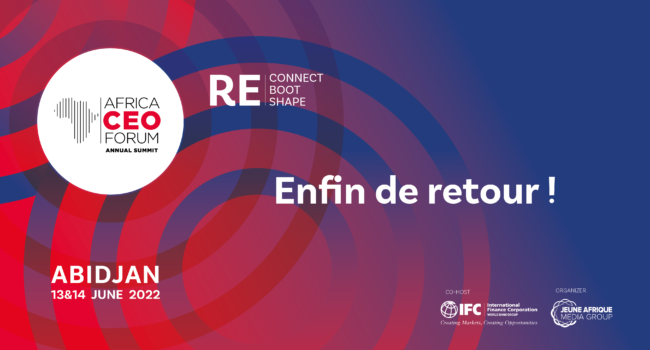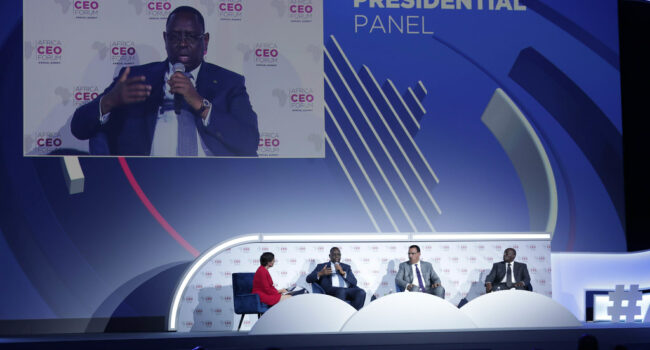
INTERVIEW WITH WINTANA SHIMELIS-POUJADE
Q: What is your story? Why and how did you thrive in a male dominated workplace? Any decisions, choices, people that got you there?
My parents raised both me and my brother in the same way. I have been lucky enough in life in the sense that the fact that I am a woman has never come into the equation whether at home, school or in my various roles. I have been taught to embrace resilience and to keep on moving forward. Because of this, I learnt to communicate with confidence and speak my mind even if most people would not agree and to accept other viewpoints. There have of course been circumstances where people, especially in Ethiopia, have not taken me seriously or disregarded me because of my gender. But I’ve always chosen to use that to my benefit, being underestimated is the most powerful element of surprise.
Q: How can we make gender diversity an explicit business priority, and not just a check-the-box training session?
I have always believed in leading by example, if the leaders practice what they preach others will follow. Gender diversity requires a change in culture, mindset, worldview. One training session is never enough, it must be practiced every day and not just in hiring practices. Organizations also need to set targets to ensure that not only do we walk the talk but also hold ourselves accountable for the targets we have set. Thus for any commitment, there should be proper measurement processes in place to track progress on the commitments made. Targets must also be embedded not only in the strategy but in the long and short term business objectives.
Q: To what extent has DIAGEO made advancing women a formal business priority supported by a strategic plan with goals, KPIs, metrics, budget, resources and executive ownership—just like you would for any formal business priority?
At Diageo we’ve set bold goals as part of our ‘Society 2030: Spirit of Progress’ action plan —. We champion inclusion and diversity across our business, at every level, everywhere. From the diverse talent we recruit, develop and retain, to the way we source services and portray diversity through our brands. At Diageo part of our 2030 Society Spirit of progress Action plan – a 10-year plan for creating a more inclusive and sustainable world, we commit to have 50% representation of women in leadership roles and 45% from ethnically diverse backgrounds amongst many commitments. All departments have key deliverables in this area, and we make sure we track progress quarterly
As part of our ‘Society 2030: Spirit of Progress’ action plan, we have set ourselves ambitious goals and we are determined to remove barriers, while having a positive impact on our partners, our suppliers and our communities.
Q: How can we ensure that maternity and paternity leave are not a source of discrimination in top employment practices?
Some governments are showing a great example in this space, and it is something for the private sector to rethink – Denmark for example has an initial period of maternity leave (14 weeks for mothers and 2 weeks for fathers), both parents are allowed 52 weeks of parental leave thereafter. In the medium to long term, this policy reduces the chances of discrimination in the workplace because mothers will not be considered as a “risk”, that they will not be available for a certain period of time due to childcare.
At Diageo we believe true gender equality at work requires fundamental changes to working practices, including a shake-up of the policies and cultural norms around parental leave. Our global Family Leave policy offers female employees in all markets a minimum of 26 weeks of fully paid maternity leave and we’ve also set a global minimum standard of four weeks paternity leave on full pay in all markets. In a bid to continue being champions of inclusion and diversity, we have introduced policies such as ‘Thriving Through Menopause’ – a set of guidelines which are designed to help raise awareness and understanding on menopause and to provide resources to employees and line managers who may be experiencing menopause, directly or indirectly. This is all in a bid to support women within the business and beyond.
Q: How can organizations consider rethinking their strategies to improve top leadership outcomes for women? How do we set up effective sponsorship schemes?
Organizations must take women’s needs into consideration, we want gender equity, but this also means recognizing the differences between men and women and catering for these needs. A major element would be flexibility, which as we’ve seen during the pandemic, does not hinder performance, on the contrary. Companies should also give the time and resources needed for women to network . For instance, we do have sponsors across the business and we have a number of mentorship programmes that run during the year. Our employee resource groups such as the Spirited Women Network (of which I am a sponsor) play a pivotal role in enabling career and wellness. We are all products of mentors and sponsors in our lives, from when we were children, during our school days to date. I have always believed that the more you give of yourself to others, the more you receive. Mentorship and sponsorship is mutually beneficial to both parties involved. Seeking ways to engage and support women in their careers, particularly through sponsorship and mentorship programs, is critically important to keep the talent pipeline full. I believe is assisting every woman and giving them the possibility to be as effective as they can be by allowing for the environment necessary to do so.
Q: Unconscious gender bias can exist at every level of an organization. How can efforts target ineffective processes, entrenched beliefs and practices that are deep-seated within an organization’s culture?
The first step is always to acknowledge that a problem exists, accept that everyone has unconscious biases. Then we can start to tackle the issue because decisions will now be made consciously knowing these biases exist and therefore avoiding them. This will also allow for a change of processes for hiring and reviewing performance among other things. At Diageo we do this through our brands – advertising is a powerful tool and brands have the power to change age-old narratives by coming up with thought-provoking communications that have the power to challenge norms. Our brands have a framework that help raise awareness around communications that passively, or actively, put gender stereotypes in ads. The frameworks lay down some clear dos and don’ts that help the brands become more progressive, overall. Yes, it does! As advertisers of some of the world’s most loved brands, we use our media spend to support progressive voices and celebrate diversity in our marketing. As part of the United Nations Unstereotype Alliance, we work to combat harmful stereotypes in advertising, and we are members of the World Federation of Advertisers’ Diversity & Inclusion Taskforce. As industry leaders, we also can help to change the landscape of our creative industry, ensuring those our agencies, content creators, directors, producers and beyond and represent the rich diversity of our consumers.
Q: Employers and business owners have a responsibility to provide a safe and nurturing work environment for their staff. But how can employers prevent and sanction psychological abuse, especially if victims are in positions of low power and voice?
Companies must take several steps in this regard. The first one being creating a policy in the lines of anti-harassment, then training of its employees to ensure everyone understands that psychological abuse is wrong and what can be considered as harassment. Then the company needs to put a safe and effective way or employees to report harassment in the same way they have put lines of communication in place to report policy breaches for instance. At Diageo, we know it is essential that the right programmes are in place to ensure integrity is embedded in every part of our business. We offer our workforce with a confidential service to raise concerns about compliance to the law, our Code, any of our global policies or standards or any other compliance and ethics matters.. It is managed by an independent, external company with staff trained to deal with reports. Overall statistics and significant matters are reported quarterly in summary format to our Executive and Audit Committees. We have zero-tolerance for reprisal against anyone reporting a concern or assisting with an investigation in good faith. Anyone found to be involved in retaliation against an individual who has raised a concern will be subject to disciplinary action.
There should be clear and predefined sanctions for abusers and companies need to strictly abide by these. If employees feel like their reports are falling on deaf ears or nothing concrete is being done about it, they will not feel safe. They need to know that they are being protected.



